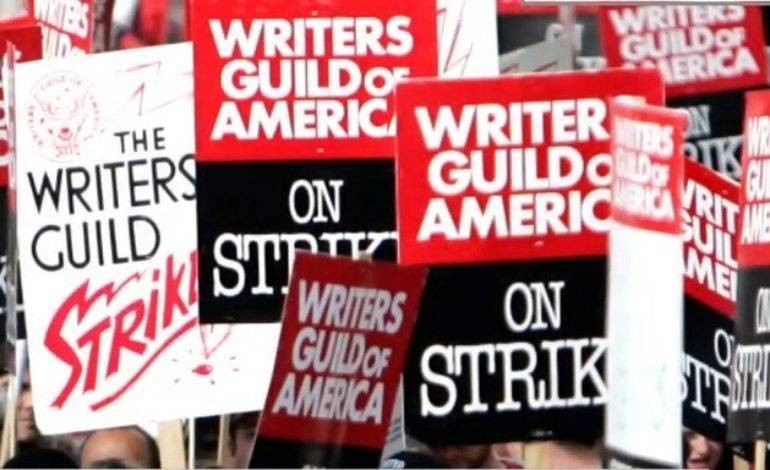

As of September 2, the writers have been on strike for four months and come mid September, it’ll be two months on strike for actors. As no agreements have been made with AMPTP, industry workers are beginning to face the threat of losing their homes. Via The Hollywood Reporter, “In July, Deadline published a story with quotes from an anonymous studio exec saying the game plan was to let the strikes drag on until union members were losing their housing, and at a recent event, Entertainment Community Fund chair Annette Bening confirmed that is indeed happening.”
Actor David Baach (Curb Your Enthusiasm, Dave, Silicon Valley) has been a SAG member since 2015 and received a grant from the SAG-AFTRA Foundation’s Emergency Assistance Program during the strike. Baach has always been able to afford the rent on his rent-controlled, one-bedroom apartment from his earnings as a working actor, but since the strike, he has almost run dry his entire savings. According to The Hollywood Reporter, Baach states, “… I haven’t been able to pay my rent the last few months. My building manager and property owners extended me a grace period due to the good social credit I had built up by doing some gardening and landscaping in our building’s common area. However, in early August I received an eviction notice from the building’s management company taped to my front door.” Like SAG-AFTRA’s Foundation Emergency Assistant Program, many Hollywood organizations have assisted industry workers during this strike with grants, with most of them being used for mortgages and rent. The director of social services in Los Angeles, in her 22 years, has never seen as many eviction notices as she has recently.
The Entertainment Community Fund, or ECF, has disbursed over $5.4 million to over 2,600 industry workers as of August 25. They are seeing a majority of these applications come from California, followed by Atlanta and New York. The SAG-AFTRA Foundation is also aiding actors, with executive director Cyd Wilson stating that they typically receive between ten to twelve applications a week for assistance, with the number skyrocketing now to an average of 50 to 75 a day since the start of the strike. Over half of the application requests are specifically for assistance with mortgages and rent. According to The Hollywood Reporter, Wilson states, “When a strike happens, people go, ‘I’m not going to go to Starbucks, I’m not going to go out to dinner.’ There were things that they cut down to bring their expenses down. But when you get to the point where you’ve cut all the fat out and you’re now down to you’ve got to pay electric, you’ve got to pay gas, you’ve got to pay your rent, I think it’s going to become tighter and tighter and more difficult.”
